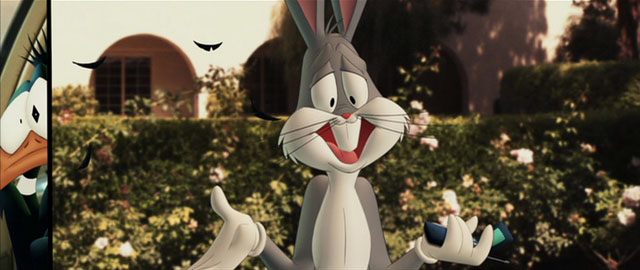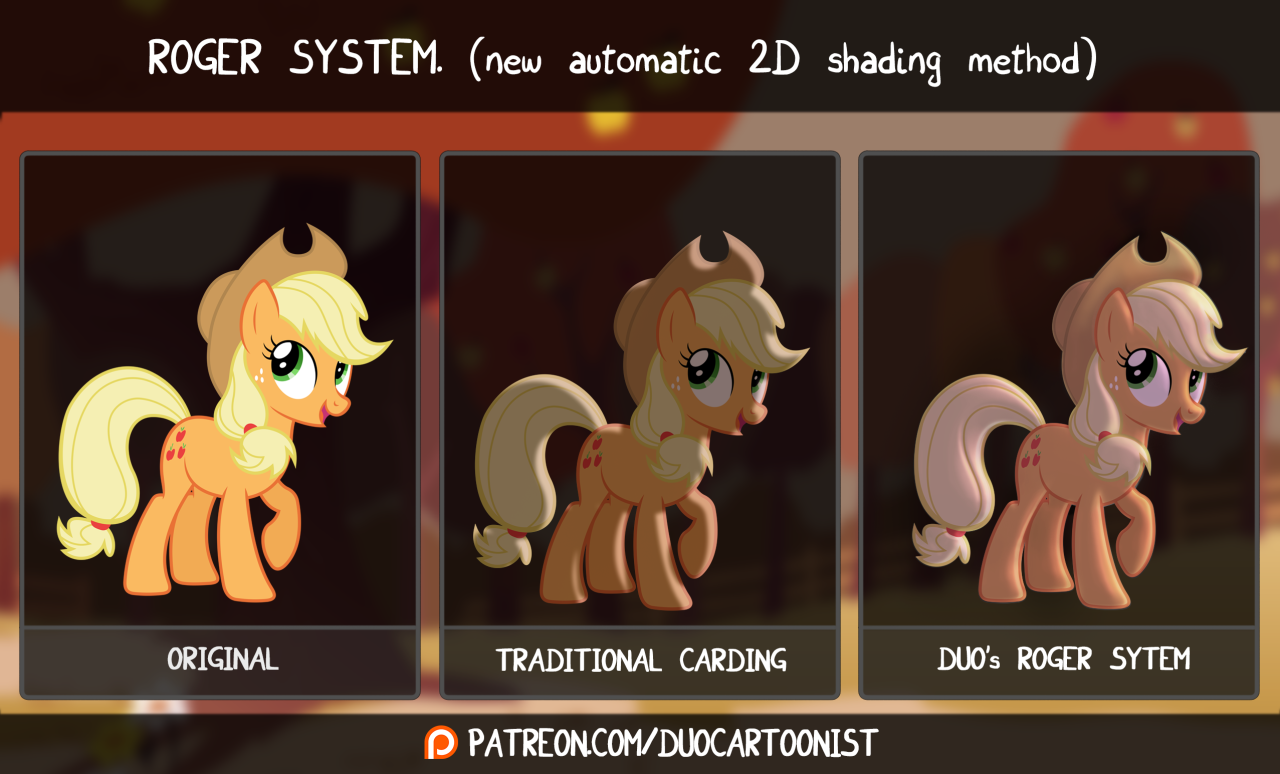Space Jam and Looney Tunes: Back in Action were not good movies, but they had pretty good animation. And the thing I'm always noticing on animations like this is the coloring and the lighting:

https://www.youtube.com/watch?v=hMAhX8hEAEQ
For the longest time I wondered what kind of technique they were using to achieve this. And then I ran across this post.
http://duocartoonist.tumblr.com/post/14 ... 0s-cartoon
Turns out the name of the software was "Lumo", but I can't find anything else about it outside of that blogpost. (I also can't find anything else about some process called "carding"?) There were a bunch of live action/cartoon hybrids back in the day that had this shading look, like this test footage of a bunked Uli Meyer movie: https://www.youtube.com/watch?v=UJHilBd6HS4) so it must have been a pretty widely used program. You can even see a bit of it for a split second in this making of video at 5:57 https://www.youtube.com/watch?v=SA4rCbkY-84 . I think something like this is also called a "normal map" at times.
Achieving this look today probably wouldn't be too hard. You could do it in TVPaint if you manipulated the FX Stack right, Toon Boom has a whole feature for stuff like this, and those Duo Cartoonist people who dug Lumo up are making their own software called Roger (it actually looks pretty good! I'd say check it out!), but it feels so weird that such an interesting piece of animation history has kind of disappeared. Has anyone out there ever worked with Lumo or heard of it? Was there some other kind of software that achieved this look in the 90's/ early 2000's? If anyone has any anecdotes, I'd love to hear them!
